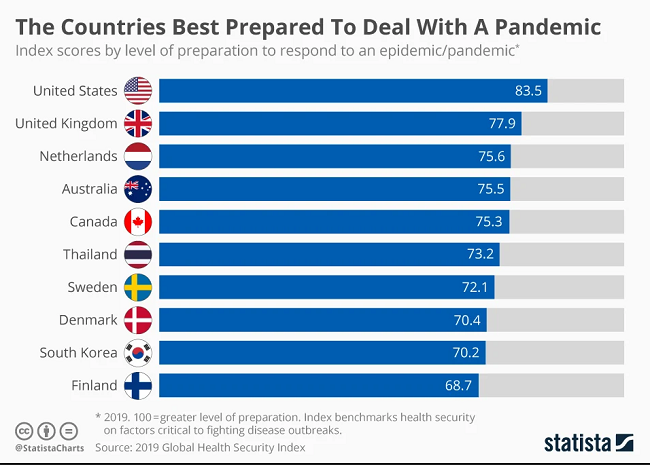Overview
The Global Health Security (GHS) Index is the first comprehensive
assessment and benchmarking of health security and related capabilities
across the 195 countries that make up the States Parties to the
International Health Regulations (IHR [2005]).
The index presents the results of an assessment of global health security capabilities in 195 countries prepared by the Johns Hopkins Center for Health Security, the Nuclear Threat Initiative (NTI) and the Economist Intelligence Unit (EIU).
It was first published in 2019. It shows that “no country is
fully prepared for epidemics or pandemics, and every country has
important gaps to address“.
The 140 GHS Index questions are organized across six categories:
- Prevention: Prevention of the emergence or release of pathogens
- Detection and Reporting: Early detection and reporting for epidemics of potential international concern
- Rapid Response: Rapid response to and mitigation of the spread of an epidemic
- Health System: Sufficient and robust health system to treat the sick and protect health workers
- Compliance with International Norms: Commitments to improving national capacity, financing plans to address gaps, and adhering to global norms
- Risk Environment: Overall risk environment and country vulnerability to biological threats
In 2019, the countries in the category “most prepared” were – in
alphabetical order – Australia, Canada, Finland, France, the
Netherlands, South Korea, Sweden, Thailand, the United Kingdom and the
United States. The United States was ranked first with an index value of
83.5 out of 100.

Reference
Download the 2019 GHS Index Report






